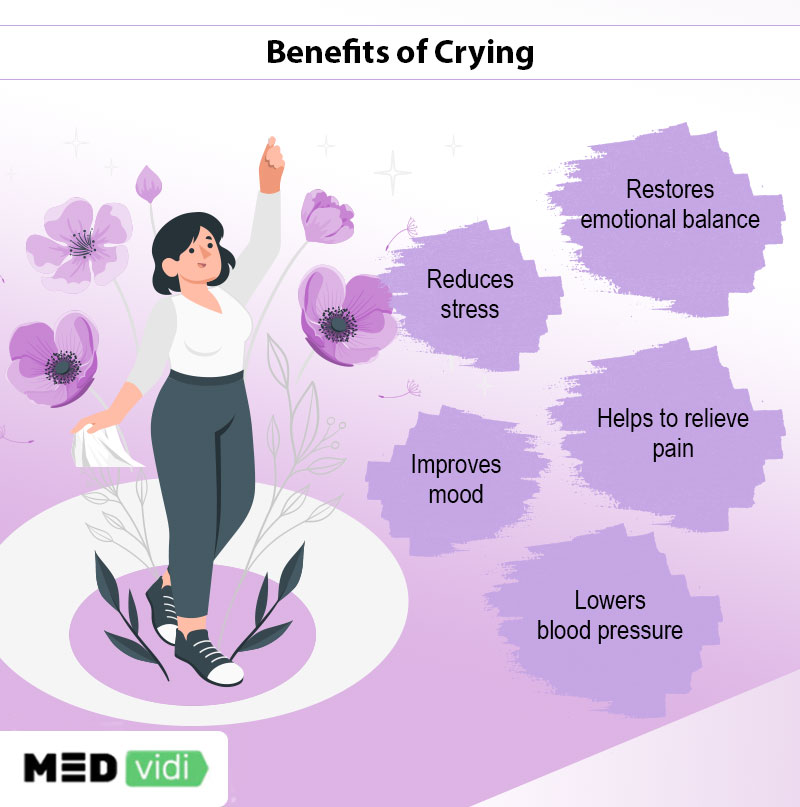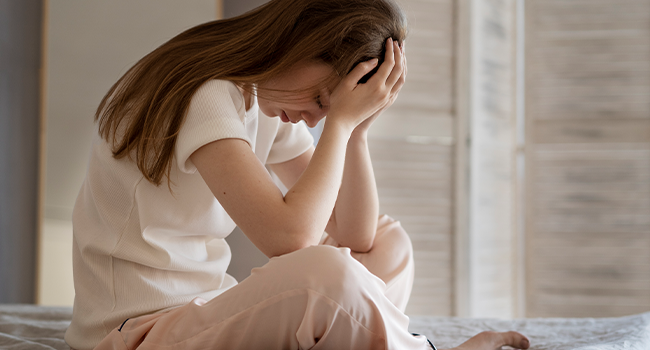Every person cries for various reasons at various times. And indeed, it is a typical and frequent reaction to stress.
Crying is one healthy way to release stress, and it’s necessary. Some people feel that crying helps them reduce tension and anxiety. Our bodies may release certain hormones and chemicals, allowing those feelings to settle down.
People are not usually crying to relieve stress as the initial goal. It is just a natural reaction to intense events, and it also has positive effects. In this post, you can learn more about it.
Overwhelmed by stress? To improve your mental health, get assistance.
Is Crying Good for You?
Crying often happens when there is a lot of stress or tension, and psychologists claim that it is a
Surprisingly, the psychological benefits of crying can be very positive, providing a sense of spiritual and emotional relief. Not merely for stress management, it can be advantageous on many levels. You might be shocked to hear that the effects of crying include emotional equilibrium restoration, temporary pain relief, and body detoxification. These and other benefits are explained in detail below.
What Are the Benefits of Crying While Stressed?
Nobody consistently leads a flawless, stress-free existence. What we can control is how we handle and respond to stress. As one of the coping options, a good weep can help you decompress and reduce tension and comes with a few other positive effects.
Takes Stress Out
It’s previously been proven that crying reduces physiological effects of stress. More research is still required, but it can be said that crying being a healthy outlet might cause your body to release hormones that help lower your stress level. For example, in contrast to tears brought on by environmental circumstances, emotional tears have higher concentrations of
Improves Mood
Crying, especially weeping, can help you manage discomfort and boost your mood. When sobbing, you inhale a lot of fast, chilly breaths. It boosts blood flow to the brain and can assist in
Helps to Relieve Pain
Emotional crying promotes
When you’re in a lot of pain, you could feel annoyed or even angry. After crying, you might be able to control some of those emotions and get rid of them, which can actually make you feel less hurt.
Persistent stress can be difficult to manage. Get professional assistance instead.
Helps to Heal Grief
If you have ever gone through the many phases of sorrow, you know it takes time. You might cry through each stage of bereavement. However, crying can be a cathartic release of emotions that may make it easier for you to accept the death of a loved one. While not everyone finds comfort in crying throughout this process, some people discover that it aids in their grieving and allows them to let go of their emotions.

Restores Emotional Balance
Not all crying is in response to anything depressing. You might occasionally cry when you’re thrilled, terrified, or feeling anxious. According to Yale University researchers, this type of crying may aid in regaining emotional equilibrium. It’s possible that crying when you’re really happy or worried about something is your body’s attempt to recuperate from such a strong feeling.
Improves Vision
When we cry for emotional reasons, such as sadness, joy, or frustration, our body produces basal tears and emotional tears. Basal tears keep the eyes moist and prevent the mucous membranes from drying out. They are expelled with each blink. Moreover, the
Lowers Blood Pressure
Before we cry, our heart rate and blood pressure tend to increase. However, once we start crying, the activation of the parasympathetic nervous system and hormonal release induces relaxation and leads to a decrease in heart rate and blood pressure. This is why we frequently feel better after crying. Following therapy sessions where patients sobbed and vented, crying has been observed to reduce blood pressure and pulse rate. Controlling blood pressure reduces the risk of blood vessels and heart damage, stroke, heart failure, and even dementia. Those who “let it all out” frequently experience feelings of lightness, tranquility, the ability to breathe more deeply, and even improved sleep.
Seek professional support if you are feeling down and self-help tips do not help.
In Conclusion
The greatest way to deal with tough emotions, such as loss and grief, is to accept them, despite how difficult they may be. It’s crucial to give yourself permission to cry if you need to.
Crying relieves stress in many different ways. However, crying alone won’t help someone with persistent stress. If you find yourself feeling tense and stressed for a long time, you cry more than usual, and it disrupts your normal well-being, consider talking to a mental health expert about the symptoms.












